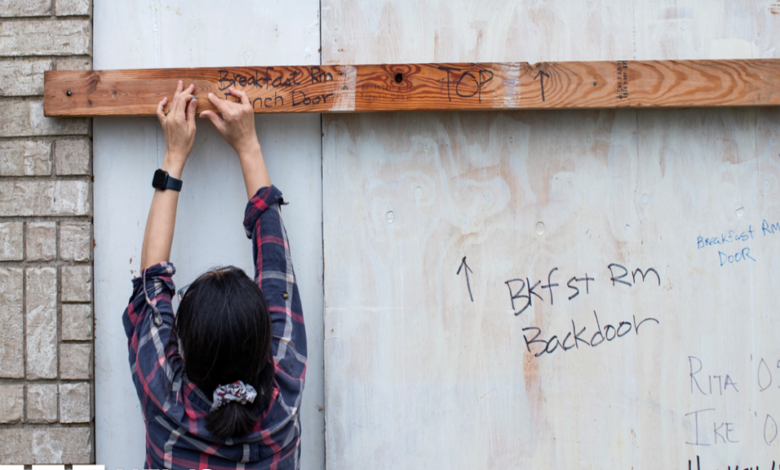Texas prepares for deadly storm making landfall

Hurricane Beryl strengthened into a Category 2 storm before making landfall in Texas, forcing evacuations in several coastal communities.
Forecasters said the storm would bring strong winds and up to 15 inches (38 centimeters) of rain, and issued storm surge warnings for the cities of Corpus Christi and Galveston.
The state governor’s office has repeatedly urged residents not to underestimate the storm as oil ports have closed and flight schedules face disruption.
Beryl caused at least 10 deaths in the Caribbean Sea before weakening into a tropical storm upon making landfall on Mexico’s Yucatán Peninsula.
More than a million Texans received hurricane warnings ahead of the storm’s landfall.
The US National Hurricane Center reported wind speeds of 70 mph (110 km/h) early Monday morning.
While the storm may not be as strong as the Caribbean, it could still cause widespread power outages and disruptions in Texas, even as far away as Houston, authorities said.
The director of the US National Hurricane Center, Michael Brennan, warned people living in the path of Hurricane Beryl to seek shelter throughout Monday “as dangerous conditions will continue even after the eye of Hurricane Beryl moves past”.
“There is a very significant risk of flash flooding across the Texas Gulf Coast, eastern Texas, ArkaTex [Arkansas-Texas] land.
“Don’t ignore this extremely severe storm,” Acting Governor Dan Patrick urged.
The ports of Corpus Christi, Houston, Galveston, Freeport and Texas City have all closed, meaning exports could be temporarily halted.
All ship movements and cargo transportation are restricted.
Refugio County, north of Galveston, issued a mandatory evacuation order on Saturday — citing limited emergency staffing capacity, July 4 holiday traffic and the area’s poor infrastructure from Hurricane Harvey in 2017.
Meanwhile, Nueces County has ordered a mandatory evacuation of visitors and encouraged locals to leave as well.
Patrick announced that more than 2,000 emergency responders have been mobilized to respond to the aftermath of Hurricane Beryl, including members of the Texas National Guard.
Landfalls like this one are quite rare in Texas in July, according to US weather service AccuWeather.
Hurricane Beryl is expected to move through the central US states, including Mississippi, this weekend.
Hurricane Beryl was an unprecedented storm. At one point, it became the earliest Category Five hurricane on record.
It left a devastating impact across the Caribbean – hitting islands such as St Vincent and the Grenadines, Mayreau and Union, and especially Grenada.
The storm was also one of the strongest ever to hit Jamaica and left hundreds of thousands of people without power.
Beryl brought heavy rain to the popular tourist destinations of Cancún and Tulum in southern Mexico. No major damage was reported, but high winds knocked down trees and caused power outages.
While it is difficult to pinpoint the specific cause of the storms as climate change because the causes are complex, unusually high sea surface temperatures are considered a major reason why Hurricane Beryl was so powerful.
It is the first storm of the 2024 Atlantic hurricane season, but the US National Oceanic and Atmospheric Administration has warned that the North Atlantic could see as many as seven major hurricanes this year — up from the average of three in a season.




